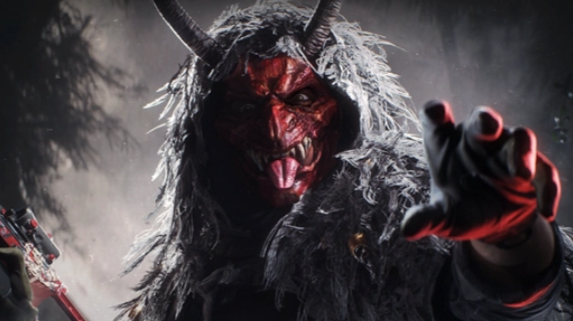Activision has reportedly launched “AI-generated cosmetics” for Call of Duty: Modern Warfare 3 in late 2023.
According to a Wired report about the impact of generative AI on the video game development industry and concerns about threats to the livelihoods of those involved, Activision has “made AI-generated cosmetics available for purchase in the Call of Duty: Modern Warfare 3 store.”
The cosmetic in question is not named in the post, but is linked to the Yokai’s Wrath bundle, which will be released in December 2023. The store did not reveal that the bundle uses generation AI.
The bundle was sold for 1,500 COD Points, a premium virtual currency sold for real-world money that brings in hundreds of millions of dollars in revenue for Activision every year. 1,500 COD Points are worth roughly $15.
It’s worth pointing out that Wired didn’t specify how much or if all of the bundle was AI-generated. The bundle included a ton of virtual items, including operator skins, weapon blueprints, calling cards, weapon stickers, and loading screens. All of these are listed below.
IGN has reached out to Activision for comment.
Wired noted that Microsoft, which owns Activision Blizzard after acquiring it for $69 billion last year, cut 1,900 employees from its games division just months after Activision sold the skin. The report claims that the company’s 2D artists are being replaced by AI.
“A lot of 2D artists were let go,” an anonymous Activision artist told the site, “and the concept artists that stayed were forced to use AI to help them with their work.” Activision employees were allegedly “enrolled” in AI training, and its use is being promoted across the company.
Generative AI is one of the hottest topics in the video game and entertainment industries, which have suffered massive layoffs in recent years. Earlier this month, Nintendo president Shuntaro Furukawa was asked about the company’s work with AI. In response, Furukawa said that generative AI could be used in “creative ways,” but that its use “also raises issues of intellectual property rights.”
In the past, generative AI has drawn criticism from players and creators due to ethical issues, rights issues, and the AI’s struggle to produce content that audiences actually enjoy. For example, Keywords Studios tried to create an experimental game in-house using entirely AI. The game failed, and Keywords told investors that AI “cannot replace talent.”
Video game console makers Microsoft and Sony are both heavily committed to AI: Microsoft, for example, is reportedly developing an Xbox AI chatbot to automate support tasks such as issuing game refunds, handling broken console or subscription issues, and answering questions about error codes.
Meanwhile, Assad Qizilbash, head of PlayStation Productions and head of product for PlayStation Studios, spoke out about AI, saying that its use in video games is important to Gen Z and Gen Alpha gamers who want “personalization on all fronts.”
“For example, non-player characters in the game will be able to interact with the player based on their actions, making it feel more personal,” Kizilbash said. “This is important for the younger Gen Z and Gen Alpha audiences, who are the first generations to have grown up in a digital environment and who want personalization in everything they do and more meaningful experiences.”
“More than 50% of our development process will be positively impacted by advancements in generative AI,” EA president Andrew Wilson told the investment community earlier this year. Wilson, who oversees EA Sports FC, The Sims and BioWare games, added that AI makes game development “more efficient,” revealing that EA Sports FC developers are now able to create stadiums in six weeks instead of six months.
Doug Cockle, voice actor for The Witcher, also expressed alarm and frustration at the growing presence of AI in the video game industry, calling it “inevitable” but “dangerous.”
Wesley is IGN’s UK News Editor. Find him on Twitter at @wyp100. You can contact Wesley at wesley_yinpoole@ign.com or wyp100@proton.me.


